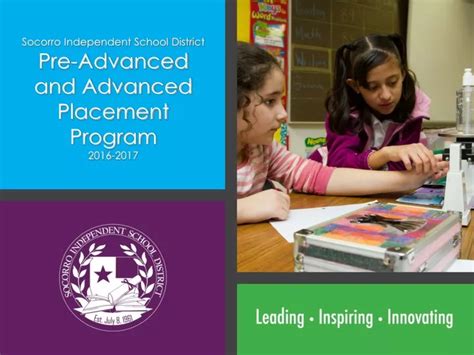Introduction
For students aspiring to pursue higher education, Pre-Advanced Placement (Pre-AP) courses offer a rigorous academic foundation that prepares them for the challenges of college-level coursework. These courses bridge the gap between middle school and high school education, providing a solid knowledge base and skills that empower students to excel in Advanced Placement (AP) classes and beyond.

Benefits of Pre-AP Courses
-
Enhanced Academic Performance: Pre-AP courses challenge students with more advanced material and assignments, improving their critical thinking, problem-solving, and analytical skills. Research shows that students who participate in Pre-AP programs score significantly higher on standardized tests and have better GPAs in college.
-
Preparation for College-Level Coursework: Pre-AP courses provide students with a preview of college-level content and rigor. They learn to manage heavy workloads, engage in sophisticated discussions, and write research papers that meet academic standards. This preparation helps them transition smoothly to college and succeed in more demanding courses.
-
Improved College Admission Chances: Colleges and universities highly value students who have taken rigorous coursework, including Pre-AP classes. These courses demonstrate a student’s readiness for advanced learning and their willingness to challenge themselves academically.
Course Offerings
Pre-AP courses are typically offered in core academic subjects such as:
- English
- Math
- Science
- Social Studies
Within each subject, students may choose from a range of courses, such as:
- English I/II: Focuses on developing reading, writing, critical thinking, and communication skills.
- Algebra I/II: Introduces algebraic concepts, functions, and problem-solving techniques.
- Biology I/II: Explores the principles of life, including cellular processes, genetics, and ecology.
- U.S. History I/II: Provides a comprehensive overview of American history from its origins to present day.
Eligibility and Placement
Eligibility for Pre-AP courses varies by school district. Typically, students are recommended based on their academic performance and standardized test scores. Students may also need to complete an application or interview to be considered for Pre-AP placement.
Challenges of Pre-AP Courses
While Pre-AP courses offer numerous benefits, they also present some challenges:
-
Increased Workload: Pre-AP courses typically involve more reading, homework assignments, and projects than traditional middle school or high school classes. Students must be prepared to dedicate a significant amount of time and effort to coursework.
-
Higher Expectations: Pre-AP courses demand a higher level of critical thinking, problem-solving, and communication skills. Students may find themselves grappling with complex concepts and challenging assignments.
-
Competition: Pre-AP classes are often highly competitive, with students striving for high grades and top performance. This can create pressure and stress for some students.
Overcoming Challenges
To overcome the challenges of Pre-AP courses, students should:
- Develop Strong Study Habits: Create a consistent study schedule, prioritize tasks, and break down assignments into manageable chunks.
- Seek Help When Needed: Don’t hesitate to ask teachers, classmates, or tutors for assistance. Utilize school resources such as tutoring centers and online support.
- Manage Stress: Practice stress-reducing techniques such as exercise, meditation, or spending time with friends and family.
Conclusion
Pre-AP courses are an invaluable opportunity for students to prepare for college success. They provide a rigorous academic foundation, foster critical thinking skills, and build a strong work ethic. By embracing the challenges and utilizing available resources, students can maximize the benefits of Pre-AP coursework and pave the way for a bright future in higher education.












